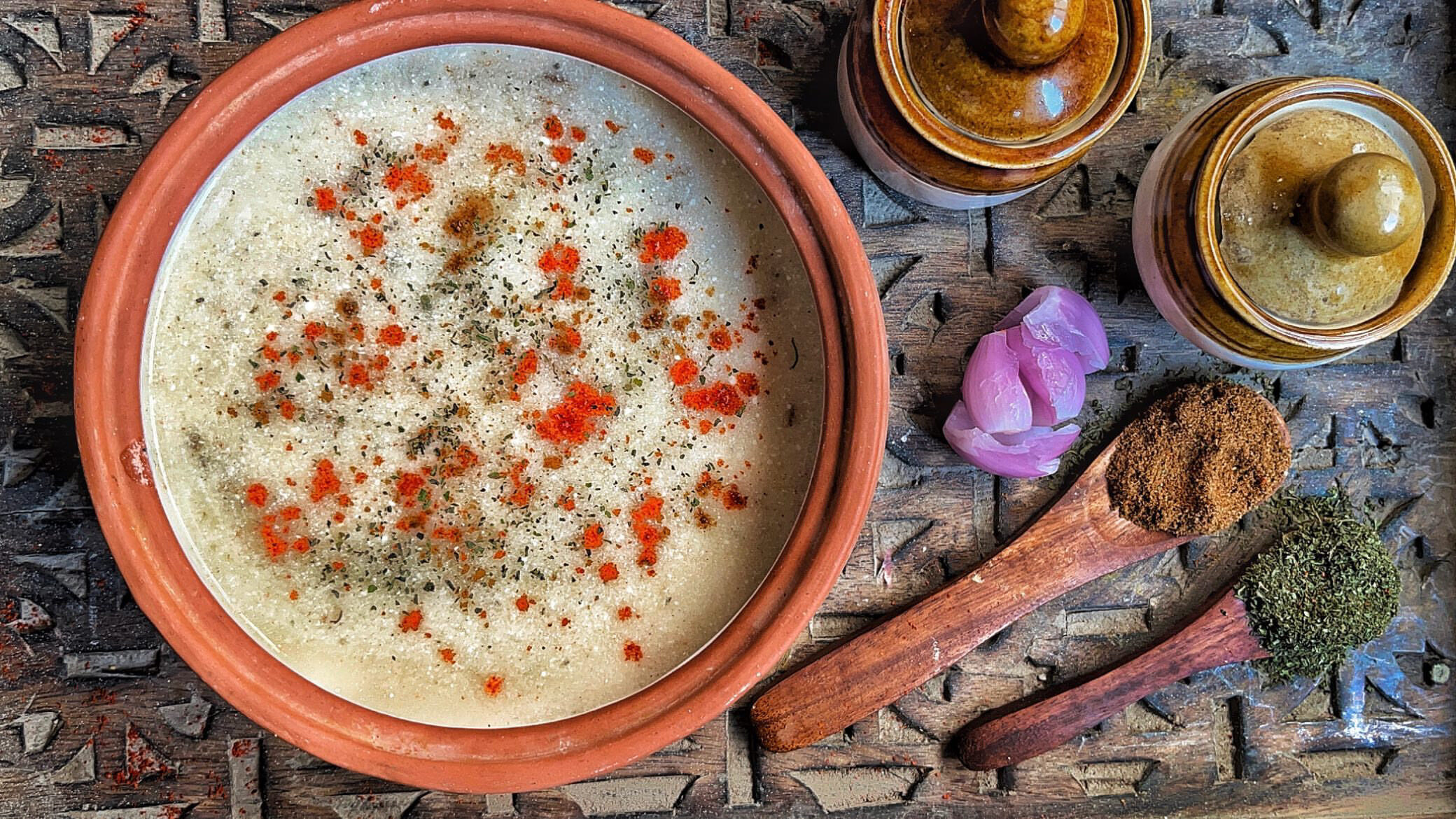
| Red chilli powder | To garnish |
|---|---|
| Mint powder | To garnish |
| Roasted cumin powder | To garnish |
| Salt | To taste |
| Cumin seeds | ½ teaspoon |
| Water | 3 cups |
| Yoghurt | 1 cup |
| Jowar flour | ¼ cup |
What You Will Need
A pot, a whisk, a ladle or mixing spoon.
Instructions
In the pot, mix together yoghurt, water, jowar flour, salt, and cumin seeds. Whisk the mixture until no lumps remain.
Turn on the stove and place the pot on the stove on a low to medium heat.
For the first five to seven minutes of cooking, keep stirring the mixture so that that yoghurt does not curdle. After that, continue cooking for about ten more minutes on a low flame, until the raab achieves the consistency of kadhi.
Turn off the flame and let the raab cool down to room temperature.
Once cool, store the raab in the fridge overnight.
Before serving the next day, add the roasted cumin powder, red chilli powder, and mint powder to the raab and stir well.
Tips
Add chopped onions, crumbled khakra, and more yoghurt to the raab for a filling meal
Variations
You can use charcoal to give the raab ‘dhungaar’. The charcoal ‘dhungaar’ is a way to infuse food with a distinctly smoky flavour by placing a hot piece of charcoal in a small bowl and pouring ghee over it. By placing this bowl into the raab and covering the entire pot with a lid, the flavour and aroma of the charcoal spreads through the prepared raab.
Dhungaar method:
Heat a piece of charcoal on an open flame till it is hot.
Place a small bowl in the raab pot and put the charcoal in it. Pour one teaspoon of ghee on the charcoal and immediately cover the pan.
Let it sit for 15 minutes, until the smoke settles.
Uncover the pan and remove the bowl of charcoal.
From growing up in a household where she never entered the kitchen, to creating a social media persona (@365kitchentales) that showcases her cooking and day-to-day recipes, Chef Surabhi has had an incredible culinary journey. Marwadi cuisine means everything to her, and she works to bring heritage recipes back into the public sphere while enjoying the simple joys of cooking.
You must be logged in to rate this recipe.

Sign in with email
